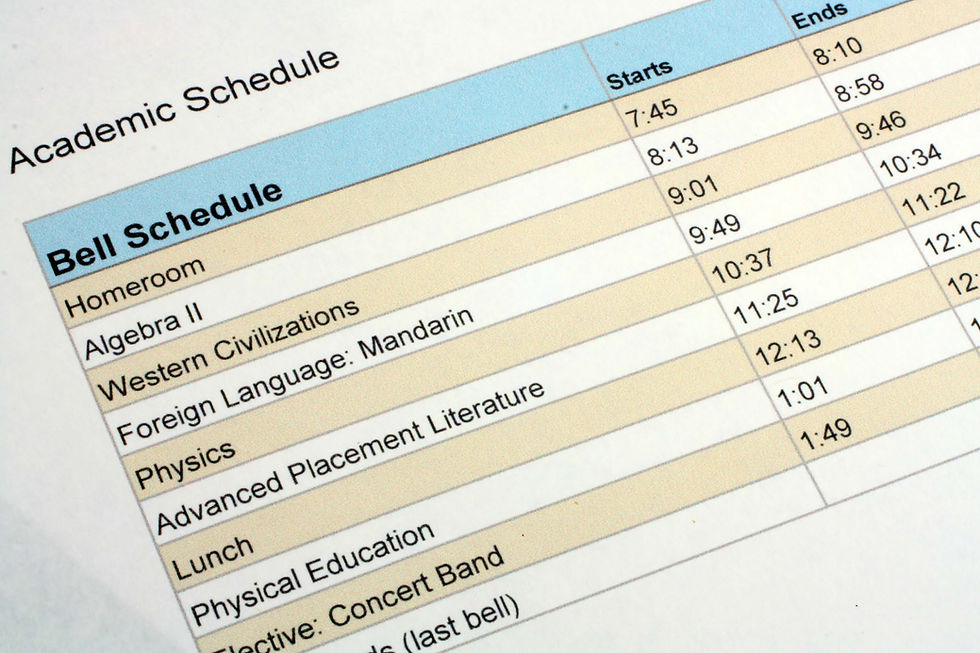As you enter your junior and senior years of high school, your course selections become even more important. Not only do they help you develop your academic strengths and interests, but they also play a key role in college admissions. Colleges want to see that you are challenging yourself in areas where you excel while also exploring subjects that align with your potential major and career goals.
Here’s how to strategically choose your courses to set yourself up for success.
Prioritize Rigor in Your Strongest Subjects
Colleges value students who take challenging courses, especially in their strongest academic areas. If you excel in math, science, English, or social studies, aim to take the most rigorous courses available in those subjects—whether that means AP, IB, honors, or dual enrollment classes.
However, rigor should be balanced with manageability. Taking every AP course available isn’t necessary; rather, focus on deepening your knowledge in the areas that genuinely interest you.
Choose Electives That Reflect Your Interests
Elective courses can be a great way to explore potential college majors and career paths. If your school offers classes in subjects like Economics, Psychology, Statistics, Engineering, Journalism, or Computer Science, consider enrolling—especially if you are thinking about majoring in one of these fields. These courses can help you determine whether a subject truly excites you before committing to it in college.
Other electives, like music, art, or foreign languages, can also strengthen your college application by showcasing your well-rounded interests.
Recommended Courses for Specific College Pathways
Business Majors (Finance, Marketing, Management, Accounting, etc.)
Strong foundation in math (AP Calculus or AP Statistics are helpful)
Economics (AP Macroeconomics and AP Microeconomics if available)
Computer Science (spreadsheets, data analysis, and coding skills are useful in business)
Public Speaking or Debate (communication skills are key in business careers)
Engineering Majors
Math is critical – aim for the highest level of math available, ideally AP Calculus AB or BC
Physics (AP Physics 1, AP Physics C if possible)
Computer Science (coding and problem-solving skills are essential)
Engineering or Robotics (if your school offers these electives, they provide great hands-on experience)
Nursing & Health Sciences Majors
Biology and Chemistry (Honors, AP, or IB level if possible)
Anatomy & Physiology (if available)
Psychology (AP Psychology can be helpful in understanding patient care)
Statistics (useful for interpreting medical data and research)
Dual Enrollment vs. AP/IB Courses: What’s Better?
Many high schools offer dual enrollment (also known as College Credit Plus), allowing students to take college courses for both high school and college credit. However, is it better than taking AP or IB courses?
Pros of Dual Enrollment:
✔ Earn actual college credits while in high school✔ Experience the pace and expectations of a college course✔ May allow flexibility in your high school schedule
Cons of Dual Enrollment:
✘ College credit transferability varies—some universities may not accept the credits or may count them only as elective credit✘ Lacks the standardized rigor of AP/IB, which colleges nationwide recognize✘ Might not carry as much weight in admissions as AP/IB for competitive colleges
When to Choose AP/IB Instead:
If you are applying to highly selective colleges, AP/IB courses are often preferred because they demonstrate standardized academic rigor.
If you plan to attend an out-of-state college, AP/IB scores are more widely accepted than dual enrollment credits.
If your high school’s dual enrollment courses are not very rigorous, an AP/IB course in the same subject might better prepare you for college-level work.
When Dual Enrollment Might Be a Good Choice:
If your school offers limited AP/IB options, dual enrollment can help you access more advanced coursework.
If you are attending a college that has an articulation agreement with your dual enrollment program, ensuring your credits will transfer.
If you want to explore niche subjects that aren’t available as AP courses.
Final Thoughts
As you plan your junior and senior year schedules, remember that your course choices should reflect both your strengths and your academic and career interests. Challenge yourself appropriately, explore electives that excite you, and consider how your choices will position you for college admissions and beyond. By selecting a balanced, rigorous schedule, you’ll not only strengthen your college applications but also ensure you are prepared for the next step in your academic journey.

